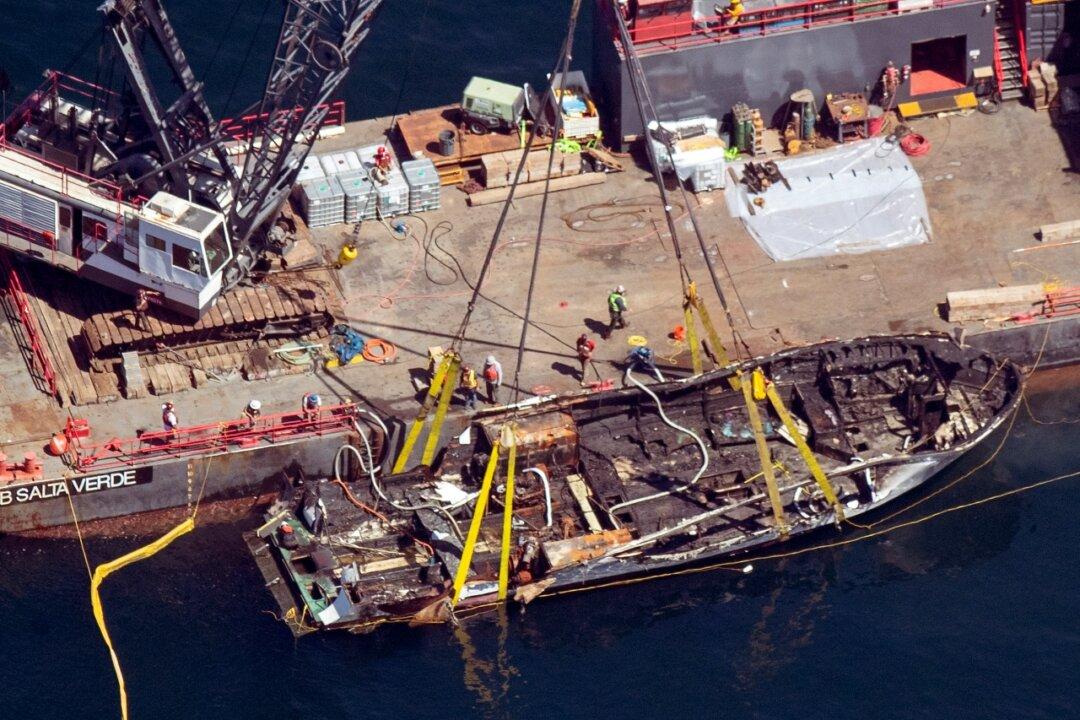LOS ANGELES—A California scuba dive boat was operating in violation of Coast Guard regulations when crew members were sleeping and a pre-dawn fire killed 34 people, leaving grieving families wondering if a required night watchman could have saved their loved ones.
Sept. 12 brought a disclosure from the National Transportation Safety Board that all six crew members were asleep aboard the Conception on Sept. 2 when the deadly blaze broke out.





